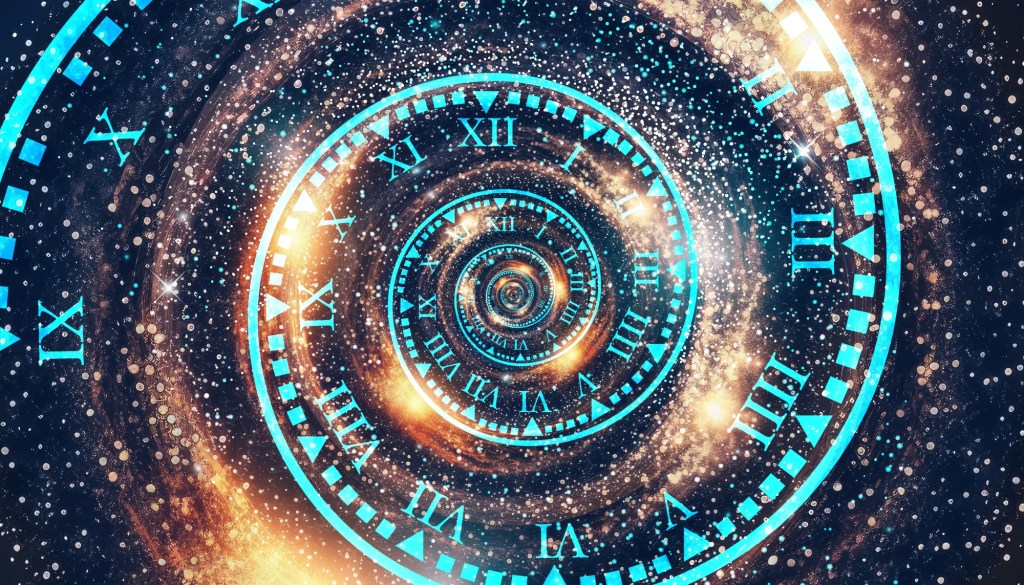On/off relationships can work out if you’re down to commit – and create some healthy boundaries – but if you’ve spent years breaking up and getting back together in a miserable cycle it’s time to have a think about why you’re sticking it out.
There are a bunch of reasons people end up in these situations. Maybe it’s because someone moves away for uni, or feels they don’t have the time to date, or wants to sleep with other people for a bit.
Videos by VICE
Whatever it is that’s causing the split, we cling to the idea that it’ll work out in the end – that if you give someone enough time they’ll realise they can’t cope without you, and that eventually it will work on the 3rd/4th/5th try.
And where do we get the idea that an endless cycle like that is normal? One obvious answer is from what we’re watching.
We’re all susceptible to the influence of TV, but before you take love lessons from your favourite streaming service, remember that writers and producers are looking for every way to stretch a romance out for 8 seasons of a show and keep things “interesting”.
Your life isn’t a teen-dream Netflix drama, where an-on-and-off relationship is inevitably leading to a final scene that ends with a kiss in the rain and a declaration that you’re both totally done with the games.
All the crying and the confusion and deception is worth it because you’re “meant to be”. But you’re not Nate and Maddy, you’re not Chuck and Blair, you’re not Joe Goldberg and whoever he’s currently trying to murder. In real life, relationships that are drawn out to this extreme aren’t normal. And the likelihood of making it work in the long run, after years of falling in and out of love, is pretty rare.
One of the few examples in TV of a realistic ending to an on/off relationship is Normal People’s Marianne and Connell, who (spoilers) don’t end up together, despite years of sweaty sex and heartbreaking monologues about loneliness and longing.
The toll this type of relationship can take on you – mentally and emotionally – can be pretty full-on. Andie*, who dated her highschool boyfriend on-and-off for almost 10 years, told VICE that she and her partner were “always using one another as an emotional crutch.”
“Neither of us ever had the guts to just call it,” she said.
“And because we know each other so well we know exactly how to get each other back on side.”
“It’s like opening a wound routinely and then wondering why it never heals.”
So if you don’t want sepsis, here are some things to look out for.
WHY ARE YOU BREAKING UP?
Let’s start with the facts: Why are your break-ups happening? Has cheating happened? Has it happened more than once? Are you ending things because you find yourself regularly fighting or hurting each other? Basically, if the causes for your break-ups fall outside of healthy, thought-out reasons like needing space or needing personal growth, then the relationship is probably something you should leave behind.
It’s not that cheating or destructive break-ups can’t be worked through, but they really do take work from everyone involved. And if it’s happening over and over again, it’s pretty clear that work isn’t being done.
WHO IS ENDING THINGS?
This is a big indicator of whether you’re holding out hope for a happy ending that’s never gonna happen: is the same person ending things everytime? Similarly, is getting back together mutual, or is one person always pushing for you to start dating again.
If you feel like you’re the one putting all the mahi in, or, on the flip side, you’re always being convinced by your ex to patch things up, then there’s a real lack of balance. And good relationships rely on balance.
HOW LONG HAS THE CYCLE BEEN GOING?
Think about how much of your life you’re willing to spend with someone you don’t end up with in the long run. Long-term monogamous relationships aren’t for everyone, and for some people dating isn’t about your end game, but if that is what you’re after then spending years dating someone on and off probably isn’t gonna make you that happy.
Breaking up and getting back together in the space of a year or two isn’t necessarily the biggest problem, but if you’re broaching 4, 5, 6+ years… that’s probably enough time to know if you’re able to make things work.
HOW LONG DOES EACH ‘ON’ LAST?
What’s the longest amount of time you have actually been together? Have you made it at least a year? Or are your “ons” only lasting weeks or months at a time? If you’ve not had a good chunk of time together, without a break-up or spending time apart, then where’s the evidence you even can be together permanently?
On a similar note, think about how much time you actually spend feeling happy in your relationship over all – both “ons” and “offs” included. If you’re unhappy with the state of things the majority of the time, or if you’re spending most of your relationship broken-up, it’s not worth your time. You deserve to be happy more often than you’re not.
WHY ARE YOU GETTING BACK TOGETHER?
Let’s keep this simple, when you get back together are you doing it because you’re willing to put in the work? Are you actually excited to be there? Or is it just because it’s comfortable? Or because you’re lonely? These reasons aren’t enough, so don’t waste your life on someone you don’t really want to be with.
DO YOU WANT THE SAME THINGS?
Maybe you don’t have any of the issues listed above, and you’re trying to do things openly and honestly, and it’s still just not working. One of the best things you can do for yourselves, early on, is figure out if you want the same things in life.
You might be great together in a lot of ways, but if one of you wants to move to London to travel and bartend for the foreseeable future and one of you wants to stick your flag firmly in the Taranaki soil and live out the rest of your days on a dairy farm, you might have to let go.
It might be to do with how you feel about having kids. It might be political differences. It might be that one of you thinks Drake makes good music. You always come first in your own life, and although compromise is really important in a relationship, if you’re totally sacrificing the life you want just so you can be in a relationship, you’re setting yourself up for a bad time.
No one can tell you if an on/off relationship is gonna work out or not – but you can make the call as to whether it’s worth your time. Fate is kind of an asshole, so don’t let it make your big life decisions for you.
Own the Feels is brought to you by #LoveBetter, a campaign funded by the Ministry for Social Development.
LoveBetter Youthline support channels:
Email: lovebetter@youthline.co.nz
Or rangatahi can text lovebetter to 234
https://check.areyouok.org.nz/
Rachel Barker is a writer / producer at VICE NZ in Aotearoa.
More
From VICE
-

Screenshot: Mintrocket -

(Photo by bymuratdeniz / Getty Images) -

(Photo by Michael Ochs Archives/Getty Images) -

Screenshot: Chucklefish



